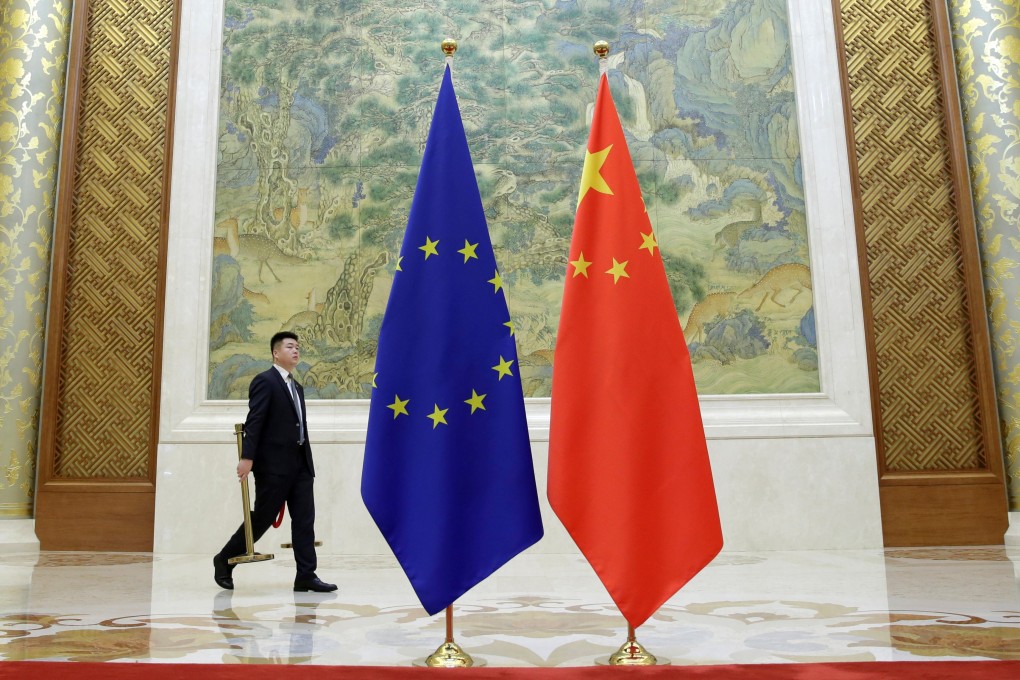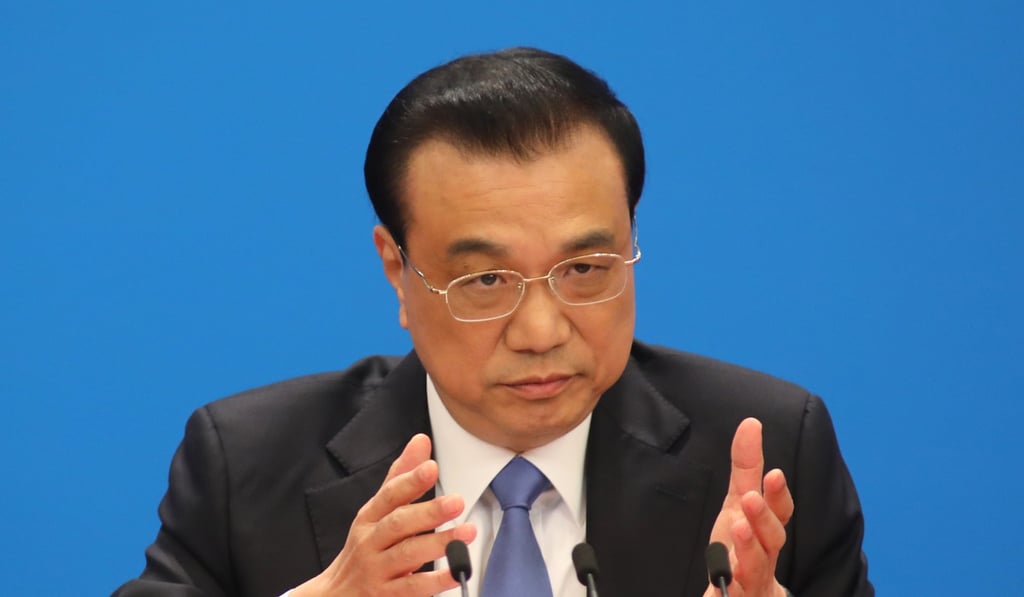Chinese Premier Li Keqiang seeks to assure EU it won’t undermine it as price for ending US trade war
- Olive branch from Beijing follows increasing concern in Europe that China is a ‘strategic rival’ that may undermine its interests

Chinese Premier Li Keqiang has offered an olive branch to the European Union by saying Beijing will not undermine the bloc’s interests if it reaches a trade deal with the United States.
The EU, China’s largest trading partner, released a paper on Tuesday which for the first time labelled China an “economic competitor” and “a systemic rival promoting alternative models of governance”.
But during the premier’s annual press conference on Friday, Li said: “China’s trade conflict with US is a bilateral matter; we will neither take advantage of nor harm the interests of a third party.
“China and the EU are important poles in this multipolar world, and China-EU cooperation will benefit not only the two parties but the whole world.”
Li admitted that there were frictions between China and the EU but called for deepening of mutual trust to solve the new issues, adding: “We are now discussing an investment agreement that’s reciprocal and fair to both sides.”
